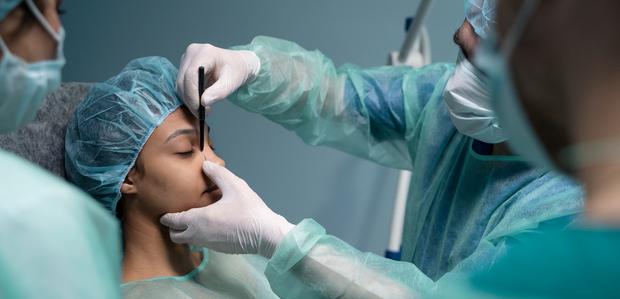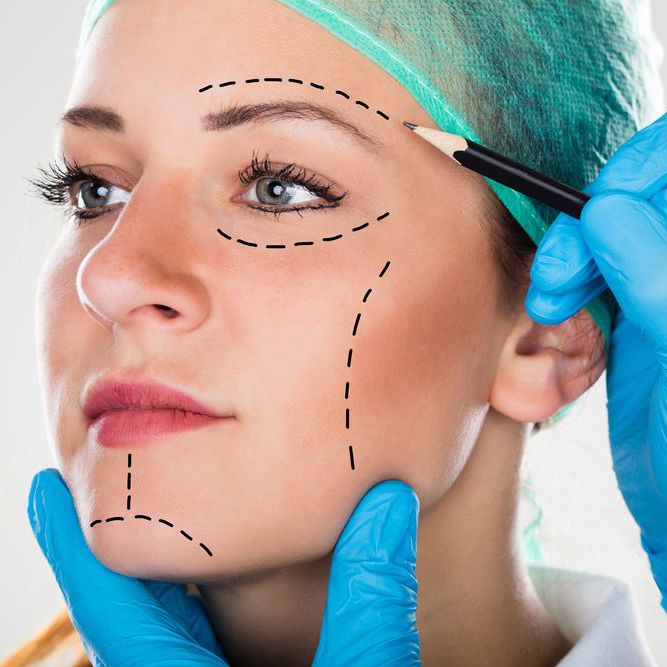Examining the Emotional and Social Factors That Drive Individuals to Think About Plastic Surgery as a Method of Renovation
The decision to seek plastic surgery frequently extends past mere looks, linking with social and mental dynamics that warrant thorough evaluation. Aspects such as self-worth, pervasive social elegance criteria, and the pervasive influence of social media sites merge to shape private inspirations for medical improvement. As these influences become significantly prominent, recognizing the underlying psychological and cultural contexts is essential. What continues to be to be discovered is the profound impact these variables have not just on individuality yet additionally on broader social norms and values bordering charm and approval.
The Role of Self-Esteem
Self-confidence significantly affects an individual's decision to go after cosmetic surgery. People with reduced self-confidence frequently perceive themselves in a negative light, leading to feelings of insufficiency regarding their physical appearance. This adverse self-perception can drive them to seek surgical interventions as a technique of boosting their self-image. The need for improvement in one's appearance is frequently connected to an idea that such modifications will certainly raise their overall self-regard and self-confidence.

Ultimately, the function of self-esteem in the decision-making process regarding plastic surgery highlights the complex interplay in between body image, individual fulfillment, and psychological health and wellness. Understanding this relationship is essential for healthcare experts to guarantee that individuals are making educated choices rooted in realistic assumptions and emotional wellness.
Societal Beauty Criteria
Influenced by prevalent media portrayals and social stories, social elegance standards play a crucial function in forming people' assumptions of their very own bodies. These standards are frequently defined by an idealized type of elegance that highlights attributes such as balance, youthfulness, and slimness. As these ideals are perpetuated via numerous networks, including movie, tv, and marketing, individuals regularly internalize these messages, bring about dissatisfaction with their all-natural appearance.
The implications of these social standards expand past aesthetic preferences; they can influence self-esteem, mental health, and interpersonal relationships. People that perceive themselves as dropping short of these criteria may experience sensations of inadequacy, prompting a need for cosmetic surgical treatment as a way of achieving social authorization. This quest is commonly sustained by the belief that conforming to these perfects will certainly improve not just physical look yet additionally social standing and individual fulfillment.

Impact of Social Media
The effect of social elegance standards is more intensified by the rise of social networks systems, where curated photos and idyllic representations of charm are common. Users are frequently revealed to filtered and edited photographs, which frequently illustrate unattainable physical qualities. This exposure grows a society of contrast, leading individuals to assess their very own look versus these commonly impractical standards.
Social media influencers and stars Going Here regularly promote cosmetic treatments, stabilizing the concept that medical enhancements are a sensible ways for attaining societal perfects (plastic surgery rancho cucamonga). The exposure of these improvements can produce an assumption that undertaking plastic surgery is a common technique, therefore influencing individuals to consider similar interventions as a path to boosted self-esteem and social acceptance
Furthermore, the interactive nature of social media permits instant feedback via sort and comments, even more reinforcing the wish to satisfy preferred charm criteria. Such communications can exacerbate feelings of inadequacy and drive read this people toward plastic surgery as a way of acquiring validation. Inevitably, social networks plays a critical role fit understandings of charm, which considerably influences the decision-making processes bordering plastic surgery.

Social Perspectives on Look
Across different cultures, perceptions of appearance are deeply rooted in historic, social, and financial contexts, forming people' views on beauty and desirability. In several cultures, look offers as a substantial marker of identity, influencing social standing, specialist possibilities, and individual connections. As an example, in some societies, light skin is commonly related to wealth and benefit, while others might glorify darker complexion as symbols of stamina and credibility.
In addition, standard charm criteria are often continued via cultural narratives, media depictions, and household influences, resulting in varying ideals across different regions (plastic surgery rancho cucamonga). In Western societies, the focus on young people and physical conditioning often drives people towards aesthetic improvement, while in specific Eastern cultures, more refined changes straightened with typical visual appeals may be chosen
Globalization and the spreading of electronic media have additionally complicated these dynamics, developing a hybridization of beauty suitables that transcends geographical boundaries. As individuals significantly navigate these social stories, the pressure to satisfy details appearance standards can bring about the desire for plastic surgery, mirroring a complicated interaction of personal ambitions and social values. Comprehending these cultural viewpoints is important in resolving the motivations behind plastic surgery factors to consider.
Emotional Influences of Aesthetic Surgical Treatment
Several individuals looking for cosmetic surgery report experiencing profound psychological effects that can dramatically change their self-perception and psychological health - plastic surgery rancho cucamonga. The desire for physical enhancement typically comes from underlying problems such as reduced self-worth, body dysmorphic disorder, or societal stress regarding appeal standards. For some, the instant post-operative phase can bring about a short-lived boost in read review confidence and contentment with their appearance, promoting a sense of empowerment
Nonetheless, these positive sensations might not be withstanding. Study shows that while some patients experience enhanced self-worth, others might face intense stress and anxiety or depression if their assumptions are not met. This disparity can emerge from unrealistic perfects perpetuated by media depiction and cultural stories surrounding elegance.
In addition, the mental ramifications of cosmetic surgical treatment prolong beyond the individual. Relationships with family and close friends might be strained as social characteristics change, causing feelings of seclusion or alienation. Eventually, the psychological effects of plastic surgery are intricate and diverse, needing cautious consideration by both potential patients and health care service providers to make certain enlightened decision-making and sensible expectations.
Verdict
Finally, the decision to pursue cosmetic surgical procedure is significantly influenced by a mix of self-worth concerns, societal beauty criteria, and social viewpoints on appearance. The prevalent reach of social networks further aggravates these pressures, promoting impractical suitables that individuals frequently make every effort to acquire. Recognizing these emotional and social factors is essential for addressing the inspirations behind plastic surgery, highlighting the demand for a much more nuanced conversation bordering elegance and self-acceptance in contemporary culture.
The choice to pursue cosmetic surgical treatment often expands past plain visual appeals, intertwining with psychological and social characteristics that warrant complete exam. Inevitably, social media plays a pivotal duty in forming assumptions of beauty, which significantly influences the decision-making procedures surrounding cosmetic surgery.
As individuals increasingly browse these cultural narratives, the pressure to adhere to particular appearance criteria can lead to the wish for cosmetic surgical procedure, showing a complicated interplay of personal desires and cultural values.In final thought, the choice to seek cosmetic surgical procedure is substantially influenced by a combination of self-esteem concerns, societal elegance criteria, and cultural point of views on appearance. Comprehending these emotional and social elements is crucial for addressing the motivations behind cosmetic surgery, highlighting the demand for a more nuanced discussion bordering elegance and self-acceptance in modern culture.